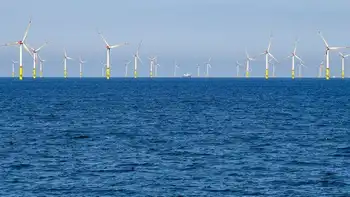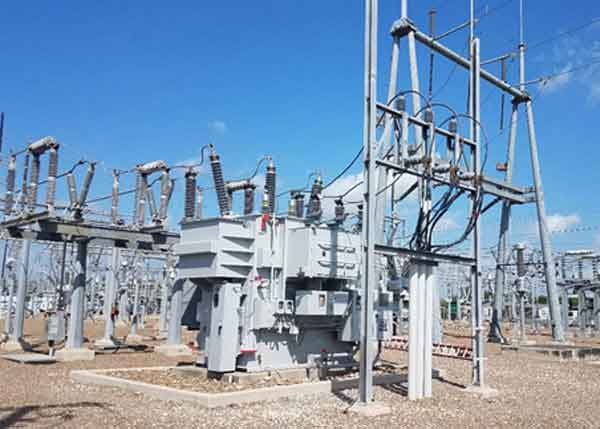PGE looks forward to business as usual as Enron drama fades
By The Oregonian
High Voltage Maintenance Training Online
Our customized live online or in‑person group training can be delivered to your staff at your location.

- Live Online
- 12 hours Instructor-led
- Group Training Available
For years, it fought the extraordinary. The bankruptcy of corrupt and complex parent Enron. The threats of massive liabilities. The controversies of ambitious takeover efforts.
Now, its worries appear relatively few and increasingly common, according to the utility's most recent financial report.
"We feel good about where we are," said Jim Piro, PGE's chief financial officer.
Certainly PGE is far from fancy-free. A process that would transfer PGE ownership to Enron creditors faces close regulatory scrutiny. Enron-related threats to PGE pension benefits and income tax liabilities have dwindled, but they linger. And customers weary of rate increases remain irritable.
Nevertheless, a gradual shift from unusual turmoil to ordinary operations continues, Piro said. The approaching end of Enron ownership has further boosted company morale, he said.
State regulators also have become increasingly confident of PGE's condition.
"You're looking at stable, healthy company that's feeling like it's finally getting out from under the Enron overhang," said Lee Beyer, chairman of the Oregon Public Utility Commission, which regulates investor-owned utilities.
PGE's latest financial report showed little change from a year ago, primarily because moderate drought conditions persisted, preventing the utility from taking full advantage of low-cost hydropower, Piro said. Warm weather also cut into energy use early in the year, another drag on earnings.
For the second quarter, the utility showed earnings of $16 million on revenue of $333 million. That compared with earnings of $22 million and revenue of $332 million for the same quarter a year ago. During the six-month period that ended June 30, the utility recorded earnings of $54 million, unchanged from the year-ago period. The company announced its earnings recently.
The biggest worry these days for PGE and its 765,000 customers reflects a concern common to utilities throughout the region and, perhaps, the country. Rising energy prices - particularly natural gas, which fuels most Northwest power plants - are pushing up power and fuel expenses and, in turn, electricity rates.
PGE expects to raise rates between 2.5 percent and 5.5 percent beginning Jan. 1 under an annual adjustment formula linked to power costs.
The utility also expects to file a general rate case by the end of this year. Piro doesn't yet know the size of the request, but it will be large enough to include anticipated increases in power costs and capital expenses from construction of a 350 average megawatt natural gas-fired power plant scheduled to come on line in mid- 2007.
Bob Jenks, executive director of ratepayer advocacy group the Citizens' Utility Board, said PGE must work harder to keep costs down. Jenks said customers continue to suffer from the 30 percent to 50 percent rate jumps of 2001, which forced households to pay some of the highest electricity rates in the Northwest.
Jenks also remains leery of the ownership transfer, under which Enron would distribute PGE stock to creditors. PGE would be listed on a major stock exchange such as the New York Stock Exchange or the Nasdaq Stock Market and be publicly traded.
The Public Utility Commission has begun to review the plan and must grant approval before distribution can begin.
"There are a lot of issues to work through, a lot of risks to consider," said Jenks, who is participating in the regulatory review.
PGE management supports the stock spinoff, the first phase of which could occur in April of next year.
"We're very excited about becoming an independent company again," said Piro, referring to PGE's status before Enron bought the utility in 1997.
Jenks is less enthusiastic. PGE could be an immediate takeover target, which could throw the utility back into uncertainty, Jenks warned. Or PGE could flex the muscles of its new-found independence by spending money on computer updates, high-tech metering and "other gimmicks and gadgets."
"I think customers want a utility that does nothing more than provide reliable electricity at a reasonable price," he said. "It's time for (PGE) to be a lazy regional utility for awhile."











